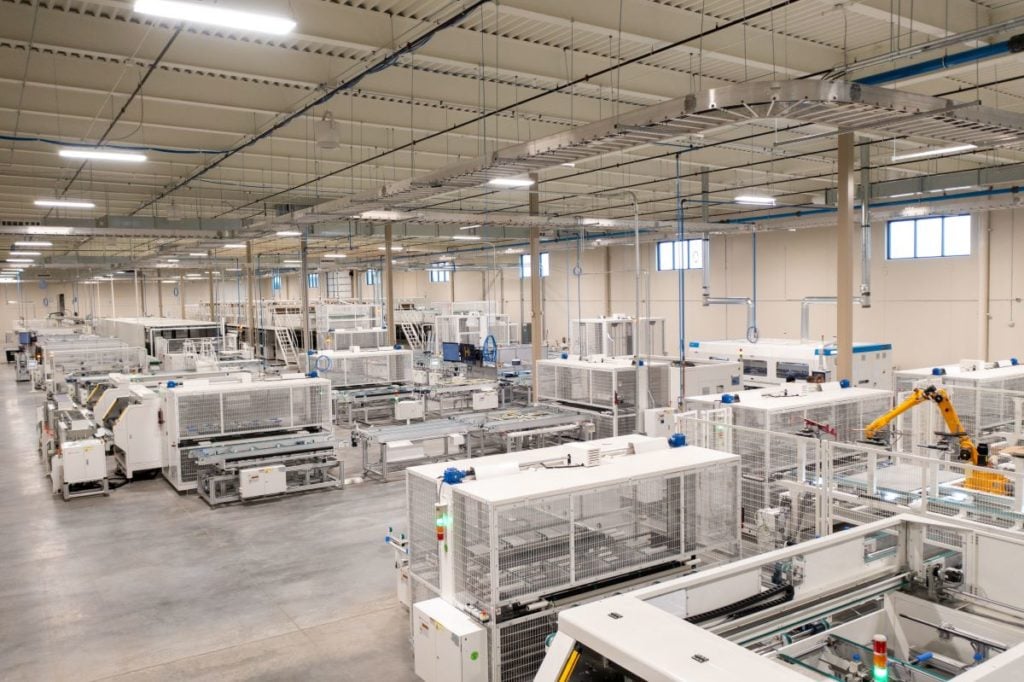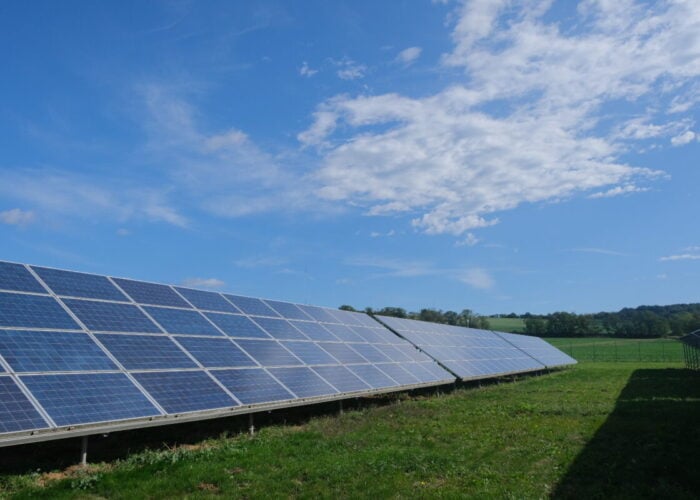
The majority of American and Chinese companies surveyed have claimed they are “prepared” for global supply chain disruption following the inauguration of US president Donald Trump, but just a fraction of US companies expect to invest in more domestic manufacturing.
These are some of the conclusions to be drawn from ‘Trump’s Trade Tightrope: A Global Supply Chain Outlook’, a report published by analytics firms AIMMS and Iter Consulting, which collected opinions of 1,000 “supply chain leaders” in five key markets: the US, China, Germany, the UK and Sweden. While the report does not specify the industries in which these experts operate, these countries, especially the US and China, represent some of the largest solar markets in the world, and industry sentiment in these regions is likely to reflect the outlook for their respective solar sectors.
Unlock unlimited access for 12 whole months of distinctive global analysis
Photovoltaics International is now included.
- Regular insight and analysis of the industry’s biggest developments
- In-depth interviews with the industry’s leading figures
- Unlimited digital access to the PV Tech Power journal catalogue
- Unlimited digital access to the Photovoltaics International journal catalogue
- Access to more than 1,000 technical papers
- Discounts on Solar Media’s portfolio of events, in-person and virtual
PV Tech has already covered the potential impacts of Trump’s isolationist trade policy on its solar sector, and today published some key conclusions from his first day in office. Despite these disruptions, industry leaders surveyed by AIMMS and Iter suggested that expanding domestic manufacturing was not a priority, with just 8% of respondents saying they were “developing onshore manufacturing capabilities” at present. This response was the least popular among US respondents, and compares to, say 15% which plan to “strengthen supplier contracts”.
This could reflect confidence in the Inflation Reduction Act (IRA) in the US, Biden’s landmark piece of legislation that triggered a fourfold increase in US PV manufacturing capacity as of last September. It has been suggested that Trump will struggle to completely repeal the IRA, considering that many of the new manufacturing facilities are located in Republican states, and created both jobs and local economic growth, and this confidence is reflected in the fact that the majority of US respondents described themselves as “prepared” for global supply chain disruption in the AIMMS and Iter report.
The chart above shows how close to three-quarters of US respondents were “prepared” for supply chain disruption. While 43% of Chinese respondents were “very prepared” for such disruptions, perhaps reflecting the fact that for many industries, such as solar, China has a very strong domestic supply chain, a similar percentage of respondents in the US and China described themselves as “neutral” or “not prepared” for supply chain disruption.
However, Chinese companies expressed much greater concern for domestic supply chain challenges than American companies, which were mostly concerned with global supply chain disruption. Of the Chinese companies profiled, 39% described the Chinese economy as presenting “very high” level of risk to their operations, the highest among five “geopolitical factors” that includes events such as the war in Ukraine and trade tariffs.
This compares to the US, where the riskiest factor was said to be “global logistics costs and reliability”, with 37% of respondents identifying this as a “very high” risk, and just 13% describing the Chinese economy as a similarly risky aspect.
Europe to make ‘moderate’ adjustments
The European solar industry is in a difficult position, caught literally and figuratively between the powers of US and China, and this is reflected in many of the report’s European respondents expecting to make adjustments to their supply chains. When asked about the potential impacts of new tariffs, 18.4% of German respondents and 14.7% of Swedish respondents said their operations would require “significant” restructuring.
Of these respondents, 24.2% and 28.4%, respectively, said they expect to make “moderate” adjustments, figures that are around double the number of respondents who expected new tariffs to have “no impact”: 13.2% of German respondents and 14.7% of Swedish respondents.
The impacts of macroeconomic changes have already been seen in the European solar sector, with Swiss leader Meyer Burger moving module capacity from Europe to the US, to take advantage of the favourable economic conditions delivered by the IRA. While Meyer Burger has since endured a number of challenges, including the resignation of CEO Gunter Erfurt and the slashing of around 200 jobs, increased isolationism from the solar industry’s two leaders will do little to overcome the challenges faced by Europe’s solar sector.
These concerns are reflected in the chart above, which shows that industry leaders in Germany and Sweden are considering making “moderate adjustments” to their operations amid geopolitical risks. Of the German respondents, 28.9% expect to make moderate adjustments, the most of any response, while the Swedish respondents were slightly more optimistic with the current status quo, with one-quarter of respondents expecting to make no changes to their work.
Close to half of German respondents suggested that new tariffs, which are expected to come into effect in the new Trump administration, would have a negative impact on their companies’ costs. Of the respondents, 21% expect new tariffs to drive a “significant” cost increase, while 27% expect a “moderate” cost increase. This compares to 15% of respondents who said that tariffs would lead to cost savings.
According to figures from the Ifo Institute for Economic Research, quoted in the AIMMS and Iter report, Germany faces potential economic losses as high as €33 billion (US$34.2 billion), suggesting that the German economy as a whole, not just its solar sector, could struggle in the coming years.
“Many businesses are unprepared for how tariffs will affect their costs, especially if they export to the US,” wrote Tim Richardson, Iter CEO and Paul Van Nierop, AIMMS strategic product owner, supply chain, in their report. “Companies need to model their current costs and test different scenarios to prepare for tariff impacts.”






